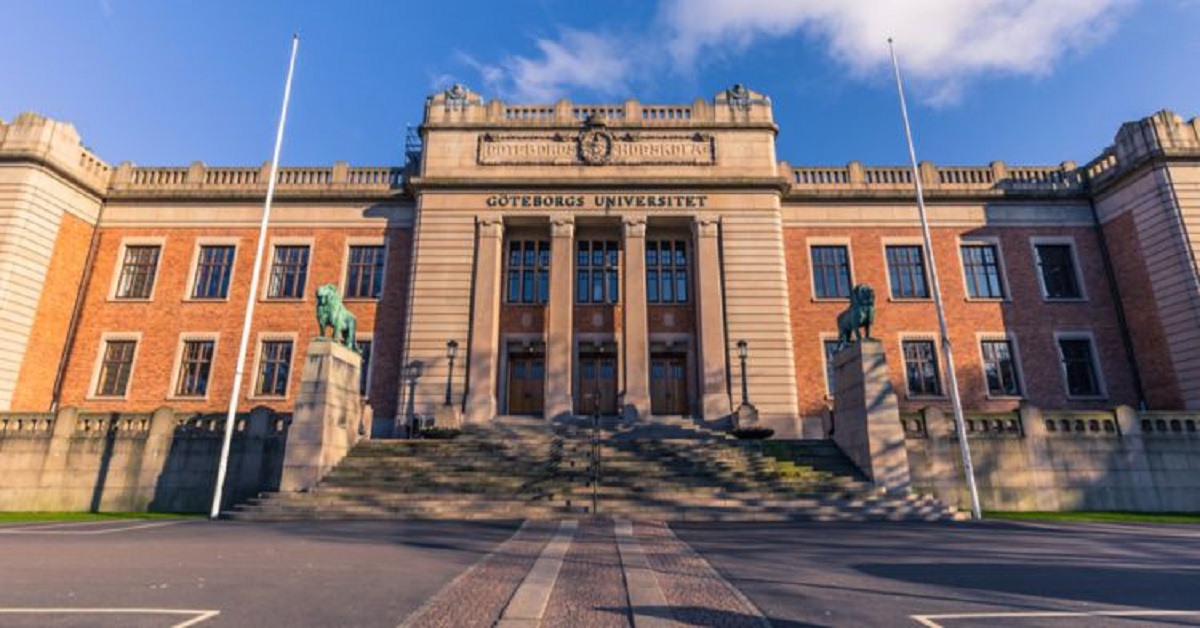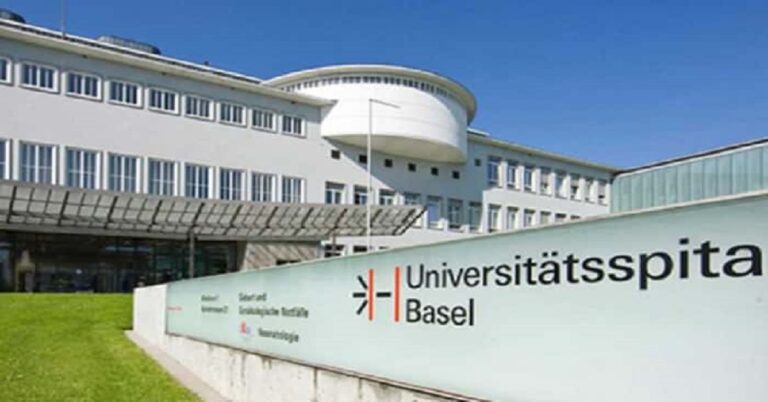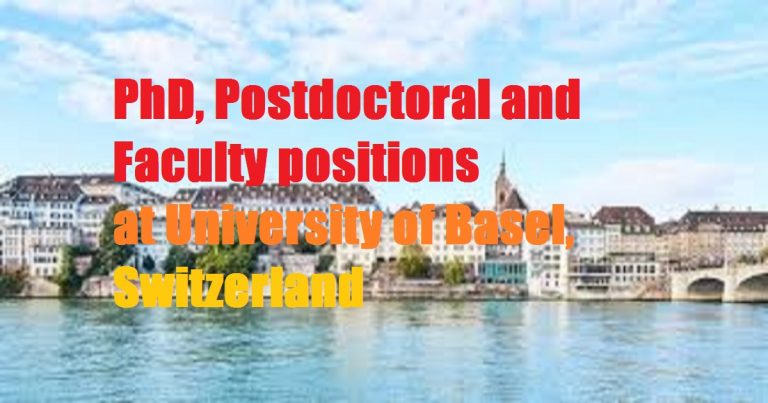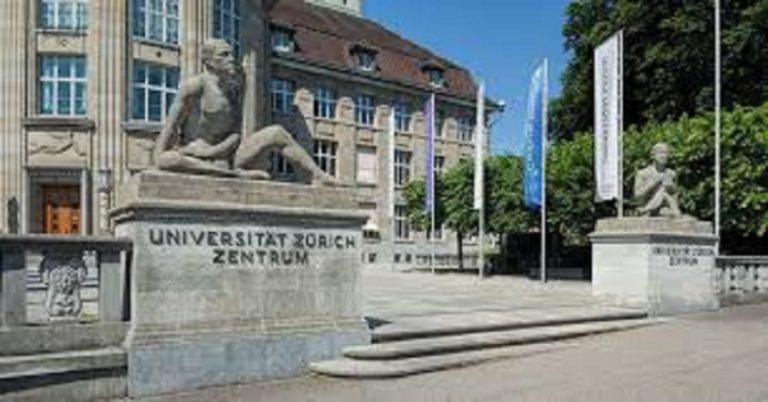
Ref PAR 2022/749
The University of Gothenburg tackles society’s challenges with diverse knowledge. 56 000 students and 6 600 employees make the university a large and inspiring place to work and study. Strong research and attractive study programmes attract scientists and students from around the world. With new knowledge and new perspectives, the University contributes to a better future.
Doctoral position in Medical Science
Project title: The role of pyroptosis in neonatal brain injury
The Department of Physiology is located at the Institute of Neuroscience and Physiology at the Faculty of Medicine at Sahlgrenska Academy, University of Gothenburg. The Department conducts research within the area of physiology. Several projects involve a close collaboration with the Sahlgrenska University Hospital. We offer undergraduate courses as parts of study programs in Medicine, Dentistry, Pharmacy, Speech and language pathology, Dental hygiene, Occupational therapy, Physiotherapy and the bachelor program of Cognitive Science. The research groups at the Department represent a broad range of research areas within the field of physiology.
General information about being a doctoral student at the University of Gothenburg can be found on the university’s doctoral student pages: https://medarbetarportalen.gu.se/doktorand/?languageId=100001&skipSSOCheck=true
Duties
The PhD education in Medical Science comprises carrying out a scientific project and completing at least 30 credits of courses at third-cycle level. The doctoral student must also write a scientific compilation thesis or monograph corresponding to at least 120 credits. For more information about third-cycle studies at Sahlgrenska Academy, see https://www.gu.se/en/sahlgrenska-akademin/doctoral-studies
Project: Children born prematurely have an increased risk of infections, which can contribute to long-term neurological complications, but the mechanisms are unknown. The bacterium Staphylococcus epidermidis (SE) is the most common infection in premature babies. In studies in neonatal mice, we have discovered that SE infection reprograms the transcriptome in microglia (the brain’s immune cell) and identified the activation of pyroptosis, a recently discovered cell death mechanism. The overall purpose of the doctoral project is to investigate pyroptosis in the brain after nenonatal SE infection and apply the new knowledge to investigate new brain-protective treatments. The doctoral student will receive broad education in several research disciplines and methods, including physiology, microbiology, neuroscience, neuropathology, experimental animal knowledge and behavior, advanced imaging techniques, flow cytometry and immunofluorescence. For more information see our website: https://www.gu.se/om-universitetet/hitta-person/carinamallard
We are looking for you who are genuinely interested in basic neuroscience. We value accuracy, personal integrity and interest and commitment to development. You should have a good ability to express yourself in English in both speech and writing, as the projects are run in an international environment. You should also be able to work both independently and in groups.
Education at third-cycle level comprises four years of full-time study, and leads to a doctoral degree. As part of your employment as a doctoral student, you may have departmental duties corresponding to up to 20 % of full-time employment, distributed throughout your study period. Departmental duties usually consist of teaching at first- and second-cycle levels, but may also include research and administration.
Eligibility
Education at third-cycle level requires general eligibility and specific eligibility as set out in the general syllabus for the subject.
The general eligibility requirements for education at third-cycle level are:
1. having completed a degree at second-cycle level, or
2. the fulfilment of course requirements totalling at least 240 credits, of which at least 60 credits must be at second-cycle level, or
3. the acquisition of equivalent knowledge in some other way, either in Sweden or abroad.
Specific entry requirements for this subject, according to the general syllabus, are:
having completed the English B/6 course or is considered to have acquired equivalent knowledge through previous studies.
Assessment criteria
The selection of applicants who are considered to have the ability required to benefit from the study programme and who meet the general and specific eligibility requirements are assessed based on the following documented qualifications:- specific knowledge and skills within the subject area and related research fields
– experience of scientific theory and relevant research methodology
– scientific analysis and presentation verified through thesis, degree project, scientific journals or the like.
Documented experience of microbiology, protein analyses and/or good knowledge in molecular biology or biochemistry is an advantage.
Employment
Once you have been admitted for education at third-cycle level, you will be employed as a doctoral student at the University of Gothenburg. The provisions for employment as a doctoral student can be found in ordinance SFS 1993:100. Initial employment as a doctoral student may apply for a maximum of one year, and may be renewed by a maximum of two years at a time. A doctoral student may be employed as a doctoral student for a maximum of eight years, but the total period of employment may not be longer than the equivalent of full-time education at third-cycle level for four years.
Location: Sahlgrenska Academy, Institute of Neuroscience and Physiology, Department of Physiology. Extent: 100%. First day of employment: as agreed.
The University applies a local agreement on salaries for doctoral students.
Contact information
For more information about the project please contact the principal supervisor,
Carina Mallard, Professor, Institute of Neuroscience and Physiology,
e-mail: carina.mallard@neuro.gu.se
Unions
Union representatives at the University of Gothenburg can be found here:
https://www.gu.se/om-universitetet/jobba-hos-oss/hjalp-for-sokande
Application
You can apply to be admitted for education at third-cycle level via the University of Gothenburg’s recruitment portal. It is your responsibility to ensure that the application is complete as per the vacancy notice, and that the University receives it by the final application deadline.
You must include the following, in pdf format
- Personal letter
- CV
- Diploma and transcripts showing that you meet with the general entry requirement
- Proof of completion of English 6 course or the acquired equivalent knowledge through previous studies
If your degree is from a university outside of Sweden, make sure that you attach a diploma and full transcripts that makes assessing your degree easier.
If your degree has not been verified by a Swedish authority you need to provide contact details to the issuing university, registrar or similar, that can verify the degree at our request.
For information on what you need to submit in order to fulfill the English language requirement see https://www.universityadmissions.se/en/entry-requirements/english-language-requirements/
Applications must be received by: 2022-07-01
Information for International Applicants
Choosing a career in a foreign country is a big step. Thus, to give you a general idea of what we and Gothenburg have to offer in terms of benefits and life in general for you and your family/spouse/partner please visit:
https://www.gu.se/en/about-the-university/welcome-services
https://www.movetogothenburg.com/
The University works actively to achieve a working environment with equal conditions, and values the qualities that diversity brings to its operations.
Salaries are set individually at the University.
In accordance with the National Archives of Sweden’s regulations, the University must archive application documents for two years after the appointment is filled. If you request that your documents are returned, they will be returned to you once the two years have passed. Otherwise, they will be destroyed.
In connection to this recruitment, we have already decided which recruitment channels we should use. We therefore decline further contact with vendors, recruitment and staffing companies.
Apply


